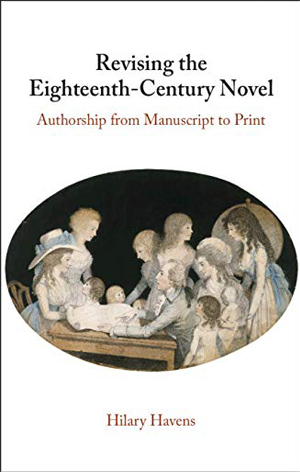Revising the Eighteenth-Century Novel: Authorship from Manuscript to Print

Revisions form a natural part of the writing process, but is the concept of revision actually an intrinsic part of the formation of the novel genre? Through the recovery and analysis of material from novel manuscripts and post-publication revisions, Hilary Havens identifies a form of ‘networked authorship’. By tracing authors’ revisions to their novels, the influence of familial and literary circles, reviewers, and authors’ own previous writings can be discerned. Havens focuses on the work of Samuel Richardson, Frances Burney, Jane Austen, and Maria Edgeworth to challenge the individualistic view of authorship that arose during the Romantic period, and argues that networked authorship shaped the composition of eighteenth-century novels. Exploring these themes of collaboration and social networks, as well as engaging with the burgeoning trend towards textual recovery, this work is an important contribution in the study of eighteenth-century novels and their manuscript counterparts.